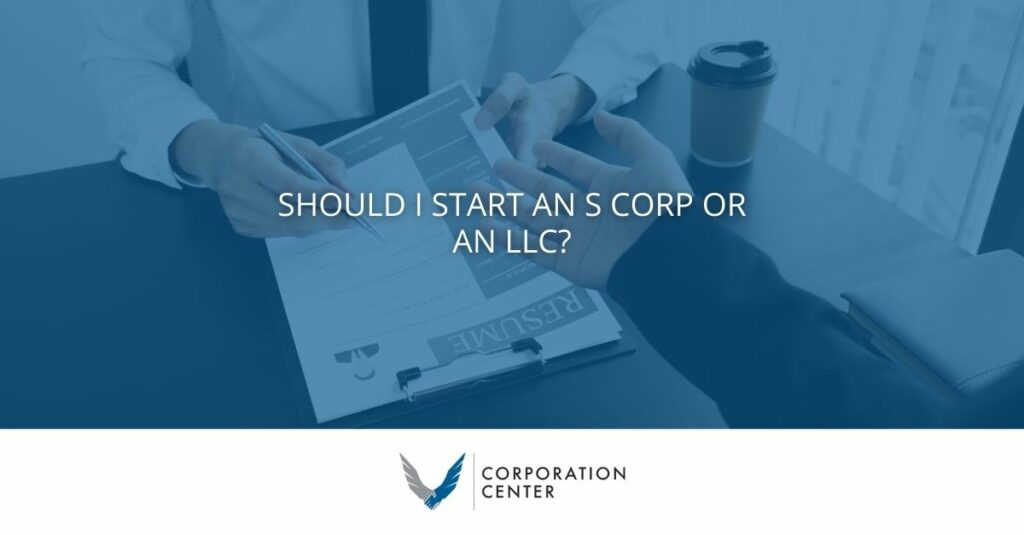Introduction
Welcome to the world of business ownership! Congratulations on taking a leap into entrepreneurship. As you get started on your journey, it’s important to make sure that you’re setting your business up in a way that it will best protect you and grow. The first major decision you’ll need to make is deciding should I start an S Corp or an LLC. We’re here to explain what those types of businesses mean and to help you decide which one makes more sense for your venture.
What Is an S Corporation and How Do I Form One?
When you form an S corporation, you are creating a type of business entity that is formally recognized by the Internal Revenue Service (IRS). An S corporation can be used to help you limit your personal liability for business debts and losses.
Once established, all income earned within the company is “passed through” to shareholders, who then report their share of profits on their own personal tax returns—and pay any taxes due at their individual income tax rates instead of corporate rates! This permits S corporations to avoid paying double tax on their profits. S corporations are taxed at the entity level on certain built-in gains and passive income.

What Is an LLC and How Do I Form One?
An LLC is a hybrid entity that combines the pass-through taxation of a partnership or sole proprietorship with the limited liability of a corporation. This type of legal entity provides more flexibility than partnerships because each owner can have his or her own role within the company while retaining some amount of protection against personal liability if something goes wrong with it.
LLCs are formed by filing the necessary documents with your state’s Secretary of State or similar office and paying whatever fees are required. Once you’ve formed your LLC, you’ll need to take several additional steps before it’s ready to operate as an independent legal entity. Be sure to check the Corporation Center website and read our blog for more information regarding the creation of different business structures.
Other Business Structures
If you’re still not quite sure which business structure is right for you, check out these other popular options:
Sole proprietorship. If your business involves just one person or entity, then the sole proprietorship is an option. It’s easy to set up and maintain but offers little protection from liability since everything associated with the company (including your personal assets) is considered to be owned by a single person.
Partnership. Partnerships are great for small businesses that want to share profits among multiple owners, but they do have some drawbacks: they’re easy to form (you can just announce that you’re partners), but they require careful planning to avoid conflicts between cofounders; they also mean sharing control over the organization’s direction and operations with all partners equally.
Which Is Better?
It is important to note that there are several advantages associated with an LLC. For example, LLCs have fewer record-keeping requirements than corporations. In addition, LLCs often have more flexibility to transfer ownership interests than corporations do. Finally, the IRS allows you to choose which type of income tax treatment you would like for your business—either “pass through” or “double taxation” (more on these later).
This being said, you should consider whether an S Corporation would be better suited for your needs if:
- You anticipate growth in your company over time and want to retain control over how profits are distributed among shareholders without having to deal with complicated tax issues related to distributions;
- If you want a simpler setup process than what is required when starting an LLC;
- You plan on hiring employees at some point down the road; and/or
- Your main goal is simply to protect your personal assets from liability risks associated with running a business.
In Some Cases, A Limited Liability Company (LLC) Is The Best Business Structure For Small Businesses
While there are a few reasons you might choose to form an S corporation, most small businesses would be better off using an LLC.
For one, LLCs are more flexible than corporations and can be structured in many different ways. While the IRS does impose some restrictions on how you run your business as a limited liability company (for example, you cannot make passive investments), for the most part, it’s up to you to decide how your business should function.
Conclusion
We hope you enjoyed reading this article! By now, you should have a better understanding of what an S corporation is, how it differs from an LLC, and how to decide which one is right for you. If you comprehend the benefits and cons, you’ll know what to expect . Contact the authority for business incorporation immediately to learn more about the process. If you still have more questions about S corporations or LLCs—or want to know more about the pros and cons of both types of entities, contact the Corporation Center at 800-580-4870.





